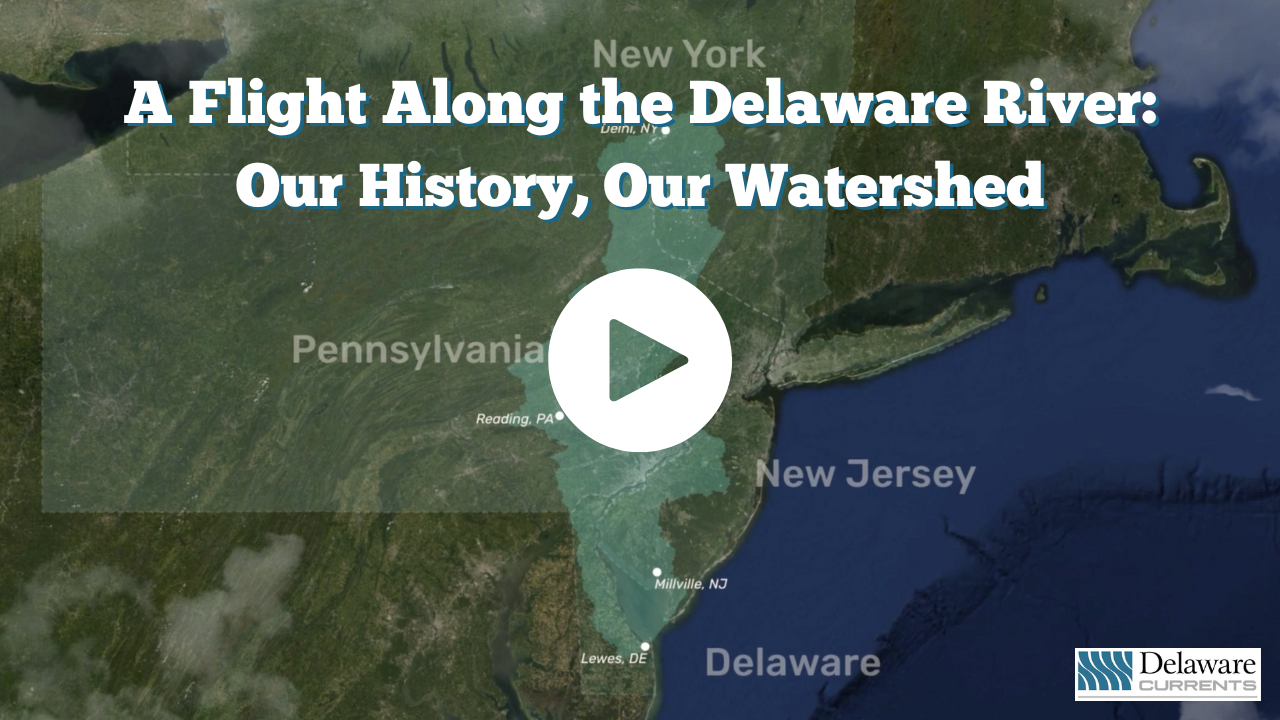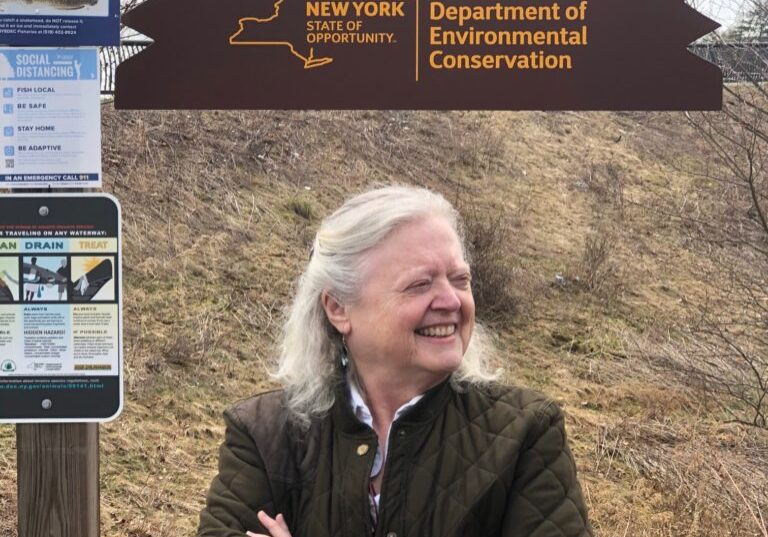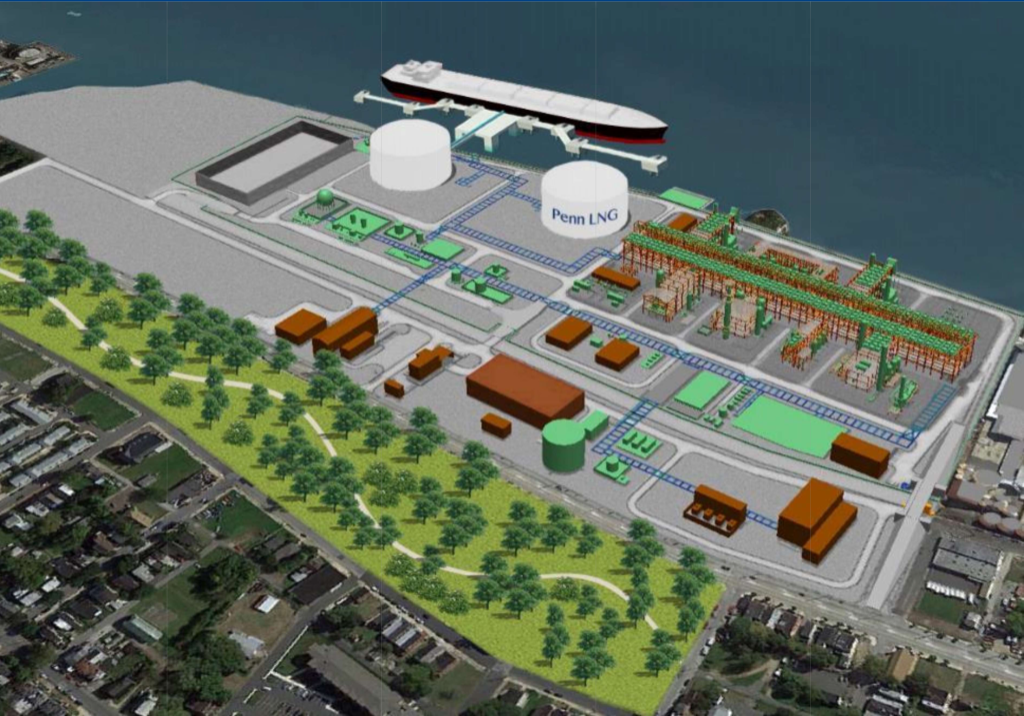
New Jersey completes purchase of Warren County farmland as developer drops warehouse plan
| May 22, 2024
Editor’s note: This story originally appeared at NJ Spotlight News. It is republished with permission.
New Jerseyans can expect the state to take a more aggressive approach to buying and preserving farmland that is slated for warehouse development now that it has completed its $27.2 million purchase of a 566-acre parcel in Warren County, officials said.
The deal was finalized last week by David Jaindl, a Pennsylvania turkey farmer and former owner of the White Township lot, and state officials, including Susan Payne, executive director of the State Agriculture Development Committee, the state’s farmland preservation agency.
The purchase price was more than double what the developer paid in 2019.
At a signing ceremony and news conference, Payne said the 2.8-million-square-foot warehouse project that would have been built in a designated agricultural district was also in the Highlands area of environmental sensitivity and lacked needed infrastructure, such as roads and sewers.
“It really became very apparent that this was a prime opportunity to stop what would have been an unfortunate development on the landscape in this area,” Payne told NJ Spotlight News.
She predicted there will be more such purchases as the state struggles to respond to an explosion of warehouse development, often on previously undeveloped sites, while logistics companies scramble for land on which to build the giant structures.
Read more: Delaware Currents special report: New Jersey warehouses bloom in the Delaware River watershed
Setting a precedent
As for whether the White Township purchase sets a precedent, Payne said: “Yes, I think it does. We’re looking at properties all over the state that are just not zoned for a land use that makes sense for the community. This has really been a little bit of a wake-up call. The public has been so vociferous in its opposition to large-scale warehouses. As we look at the farm belt, we’re taking a closer look at ‘What is the zoning?’ and, ‘Does it make sense for where it is?’” she said.
The signing was witnessed by about 50 members of Citizens for Sustainable Development, a community group that led fierce opposition to the warehouse plan over more than four years.
Members cheered the surprise announcement at a township planning board meeting last fall that the warehouse plan had been dropped, and that the land would instead be sold to the state and permanently kept for agriculture.
The community group’s vice president, Tom Bodolsky, said he had received many calls from other anti-warehouse groups seeking advice about how to organize against a project even though it complied with zoning at the time of application.
White Township changed its zoning within months of the Jaindl application being filed so that any industrial development on farmland would have to be much less dense than the Jaindl plan, but it did not apply to that project because it was not in effect at the time of the application.
His group ended up on the winning side because of the sheer number of activists — up to 250 residents clad in orange T-shirts packed some planning board meetings — and because they did the hard work of learning the fine details of the application and land-use law, Bodolsky said.
“Essentially, you’ve got to pound the pavement, go door to door, get people interested and do your homework,” he said. “You’ve got to balance the tax ratables against all the environmental consequences. I’ve been here 44 years, and it was unlike anything I’ve ever seen.”
Read more: New Jersey warehouse opponents create a new coalition
Concerns over quality of life
If it had been built, the warehouse complex would have seriously hurt the quality of life in the rural township, said James Kern, one of three Warren County commissioners.
“It did not represent something that would have had a positive impact for Warren County,” Kern said. “We have always been telling our municipalities where smart growth takes place, and this is not where that belongs.”
Warehouse opponents across the state argue that the buildings generate truck traffic that chokes local roads and hurts air quality, while vast new paved areas worsen stormwater runoff as climate change brings more and bigger storms.
The community opposition played a role in the state’s decision to offer to buy the Warren County property, Payne said.
“We understood that there was serious public opposition to this,” she said. “We need to know that a community would support preservation. We would not walk into a community and try to preserve a property that’s pending development if the township supported the application.”
Jaindl, who purchased the farm for $11 million in 2019, said he still believes his project would have ultimately prevailed but said he had agreed to sell the land to the state when Payne approached him about it in June 2023.
“The state came to us aggressively,” he said. “She gave me a compelling story, and I agreed. Never was I concerned about losing the argument.”
A call for localities to take the lead
Payne, who is due to retire on June 1, said New Jersey has preserved some 250,000 acres of farmland in the last 40 years, representing about half of the land that could be preserved.
She predicted that the state doesn’t have another 40 years to preserve what remains, and so must be as “aggressive” about future purchases as it was in White Township.
“We don’t get the chance to preserve 600 acres very often so when we get that kind of chance, we really need to step up and get it done, and that’s what everybody here today did,” she said.
Payne noted that the White Township parcel was much larger than the typical State Agriculture Development Committee purchase of about 80 acres.
Asked whether the White Township purchase was the state’s answer to criticism that it hasn’t done enough to manage the warehouse boom, Payne said the solution to the problem really rests with municipalities, which fiercely defend their authority over land use in a home-rule state.
“Municipalities are in control of planning and zoning, and if they don’t like what’s on their books, they should change it,” she said.
But the Legislature is also seeking ways of managing the warehouse boom, as reflected by about two dozen current bills that would address various aspects of the industry’s effects on the state.
As for the land in White Township adjoining the Delaware River, it will continue to be used by the current farmer to grow crops and is expected to be sold in 2026 for agricultural purposes only, Payne said.



![DC_Image [Image 4_Assunpink Meets Delaware] meets Delaware The Assunpink Creek on its its way to meet the Delaware River. The creek passes through woods, industrial and commercial areas and spots both sparkling and filled with litter.](https://delawarecurrents.org/wp-content/uploads/bb-plugin/cache/DC_Image-4_Assunpink-meets-Delaware-1024x768-landscape-14f069364113da5e8c145e04c9f2367c-.jpg)



